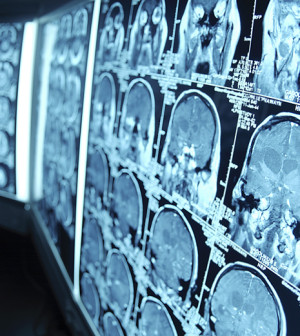- Could Your Grocery Store Meat Be Causing Recurring UTIs?
- Are You Making This Expensive Thermostat Error This Winter?
- Recognizing the Signs of Hypothyroidism
- 10 Strategies to Overcome Insomnia
- Could Artificial Sweeteners Be Aging the Brain Faster?
- Techniques for Soothing Your Nervous System
- Does the Water in Your House Smell Funny? Here’s Why
- Can a Daily Dose of Apple Cider Vinegar Actually Aid Weight Loss?
- 6 Health Beverages That Can Actually Spike Your Blood Sugar
- Treatment Options for Social Anxiety Disorder
High-Fat, Low-Carb Diet May Help With Tough-to-Treat Epilepsy


Eating a low-carb, high-fat diet could help control epilepsy that is difficult to treat, according to new research.
A review of five studies found that a ketogenic, or modified Atkins diet, that focuses on foods like bacon, eggs, heavy cream, butter, fish and green vegetables, could help reduce seizures in adults whose condition doesn’t improve with medication.
“We need new treatments for the 35 percent of people with epilepsy whose seizures are not stopped by medications,” study co-author Dr. Pavel Klein explained in an American Academy of Neurology news release. “The ketogenic diet is often used in children, but little research has been done on how effective it is in adults.”
In conducting the review, the researchers analyzed five studies on the ketogenic diet involving 47 people. The ketogenic diet consists of a ratio of fat to protein/carbohydrate of three or four to one.
The researchers also reviewed five more studies on the modified Atkins diet, which included 85 people. The modified Atkins diet has a one-to-one fat to protein/carbohydrate ratio by weight.
The researchers found that 32 percent of the patients on the ketogenic diet and 29 percent of those following the modified Atkins diet had reduction in their seizures by 50 percent or more. Meanwhile, 9 percent of those in the ketogenic diet group and 5 percent in the modified Atkins group had drops in their seizures by 90 percent or more, according to the study published online Oct. 29 in Neurology.
The benefits of these high-fat diets happened quickly — just days or weeks after the patients began following them. The results persisted, but only if the adults continued to follow the diets. Once the patients stopped following the diets, the benefits also stopped, the researchers noted. None of the side effects of the diets were serious, and most often the patients experienced weight loss, not weight gain, the researchers said.
However, of those on the ketogenic diet, 51 percent stopped before the study ended and 42 percent on the modified Atkins diet also stopped early.
“Unfortunately, long-term use of these diets is low because they are so limited and complicated,” said Klein, from the Mid-Atlantic Epilepsy and Sleep Center in Bethesda, Md. “Most people eventually stop the diet because of the culinary and social restrictions. However, these studies show the diets are moderately to very effective as another option for people with epilepsy.”
Two experts said the ketogenic diet approach may have pluses and minuses for patients.
“For persons with epilepsy who have difficult-to-control seizures, a dietary treatment rather than trying another antiseizure medication has a lot of appeal,” said Dr. Cynthia Harden, director of North Shore-LIJ’s Comprehensive Epilepsy Care Center in Great Neck, N.Y. “It allows patients and their families to have full participation in this treatment approach and empowers them to self-manage their illness to some degree.”
“I have advised many patients to adopt the modified Atkins diet, eating low carbs and high fats and proteins, as another treatment in addition to their medications,” she added. “Some patients have benefitted greatly from this dietary approach, however, the limitation has been that associated with any diet regimen, which is the inability to really adhere to the diet over the long term.”
Dr. David Friedman is director of the Comprehensive Epilepsy Center at Winthrop-University Hospital in Mineola, N.Y. He agreed that the diets can have “remarkable results in patients,” but “they are often discontinued because of their restrictiveness.”
Harden believes that “more research and more support for persons with epilepsy undertaking this diet would help the epilepsy community to understand the mechanism of the ketogenic diet and ways to improve compliance with it over the long term.”
More information
The U.S. National Institute for Neurological Disorders and Stroke provides more information on treatment for epilepsy.
Source: HealthDay
Copyright © 2026 HealthDay. All rights reserved.










